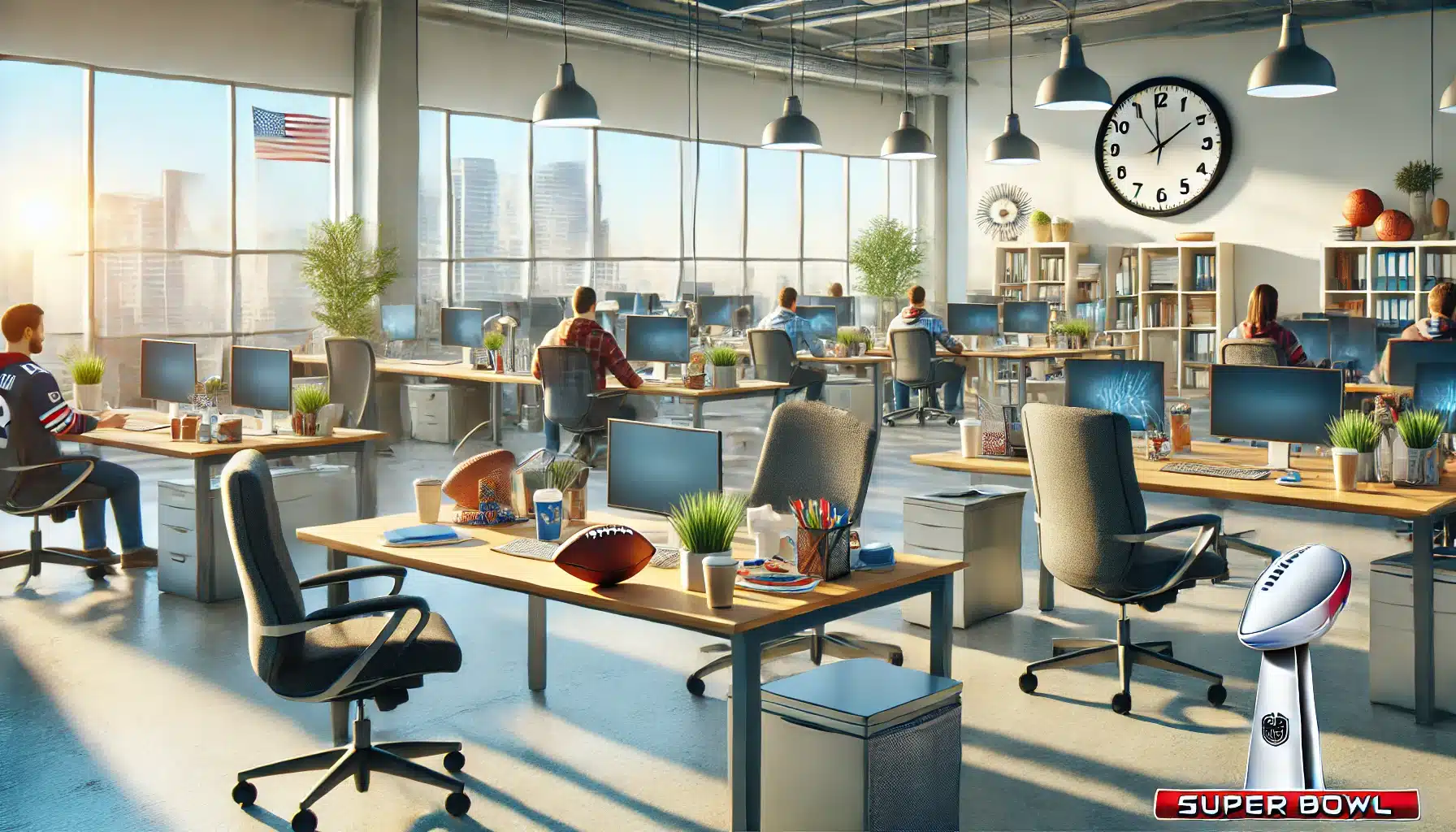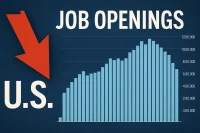The Super Bowl is the biggest sporting event in the US sports calendar.
Early indications from Fox Sports suggest the match between the Kansas City Chiefs and the Philadelphia Eagles was watched by 126 million people.
This is why advertisers pay big money for half-time commercials.
It is estimated 300 million gallons of beer are drunk during Super Bowl Sunday.
And because the event is held on a Sunday, it leads to an issue the following day.
Estimates from The UKG Workforce Institute predicted 22.6 million employees missed the Monday after the Chiefs and Eagles face off.
This marks a new record, surpassing last year’s 18.1 million, which was also a Chiefs-Eagles matchup.

The Big Picture: What US Did To Avoid Work
While not everyone plans to take the day off, many employees had plans in place to avoid working on Monday.
Here’s a breakdown of how people intended to handle the day after the big game:
- Sick Calls: 3.2 million employees plan to call in sick.
- Ghosting: Another 3.2 million intend to “ghost” their employer by not showing up without notice.
- Pre-Approved Days: 12.9 million people have already secured a day off.
- Shift Swaps: 4.8 million will swap shifts with coworkers to get the day off.
- Late Arrivals: An additional 12.9 million will be coming in late, while 8 million remain undecided.
While the overall number of employees missing work is high, the trend is becoming more transparent. More workers are openly discussing time off with their manage
Why This Matters: A Growing Trend
Though Super Bowl Monday isn’t an official holiday, it has garnered increasing attention in recent years. Many people are treating it as if it were one, with petitions and legislative efforts pushing for recognition.
- Indiana Bill: This week, the Indiana legislature introduced a bill to make Super Bowl Monday an official holiday.
- Public Support: Forty-three percent of employees now believe it should be a holiday, up from 37% in 2024, according to UKG’s survey.
Hiring? Post jobs for free with WhatJobs
What Companies Are Doing
Recognizing the widespread interest in time off, some companies are taking proactive steps to meet employee demands:
- Chipotle and Coors Light are offering special promotions on Super Bowl Monday to keep employees engaged and customers happy.
- Companies are also more flexible with work arrangements, encouraging employees to make up for lost hours or adjust shifts.
Transparency in the Workplace: A Step Forward
One silver lining amidst the expected absenteeism is the increase in transparency.
Julie Develin, a senior partner at UKG, said while more people plan to take Super Bowl Monday off, businesses are adapting.
Open conversations about swapping shifts, working late, or taking the day off without causing disruption are becoming more common.
She said:
“We continue to see forward progress with managers and employees having more open conversations about taking the day off, swapping shifts, or making arrangements to come in late so that the business is covered.
Need Career Advice? Get employment skills advice at all levels of your career
A New Work Culture: Balancing Fun and Responsibility
As more people embrace the tradition of taking Super Bowl Monday off, companies are finding ways to maintain productivity without sacrificing employee well-being.
This shift reflects a growing understanding that employees need to balance their personal interests with professional responsibilities, especially after major events like the Super Bowl.
It seems likely that the trend of absenteeism on the Monday following the Super Bowl will continue to rise, especially as discussions around making the day a holiday gain momentum. How will companies adapt next year? Will more states push for legislative action?
The future of Super Bowl Monday as a workplace phenomenon is still unfolding.




